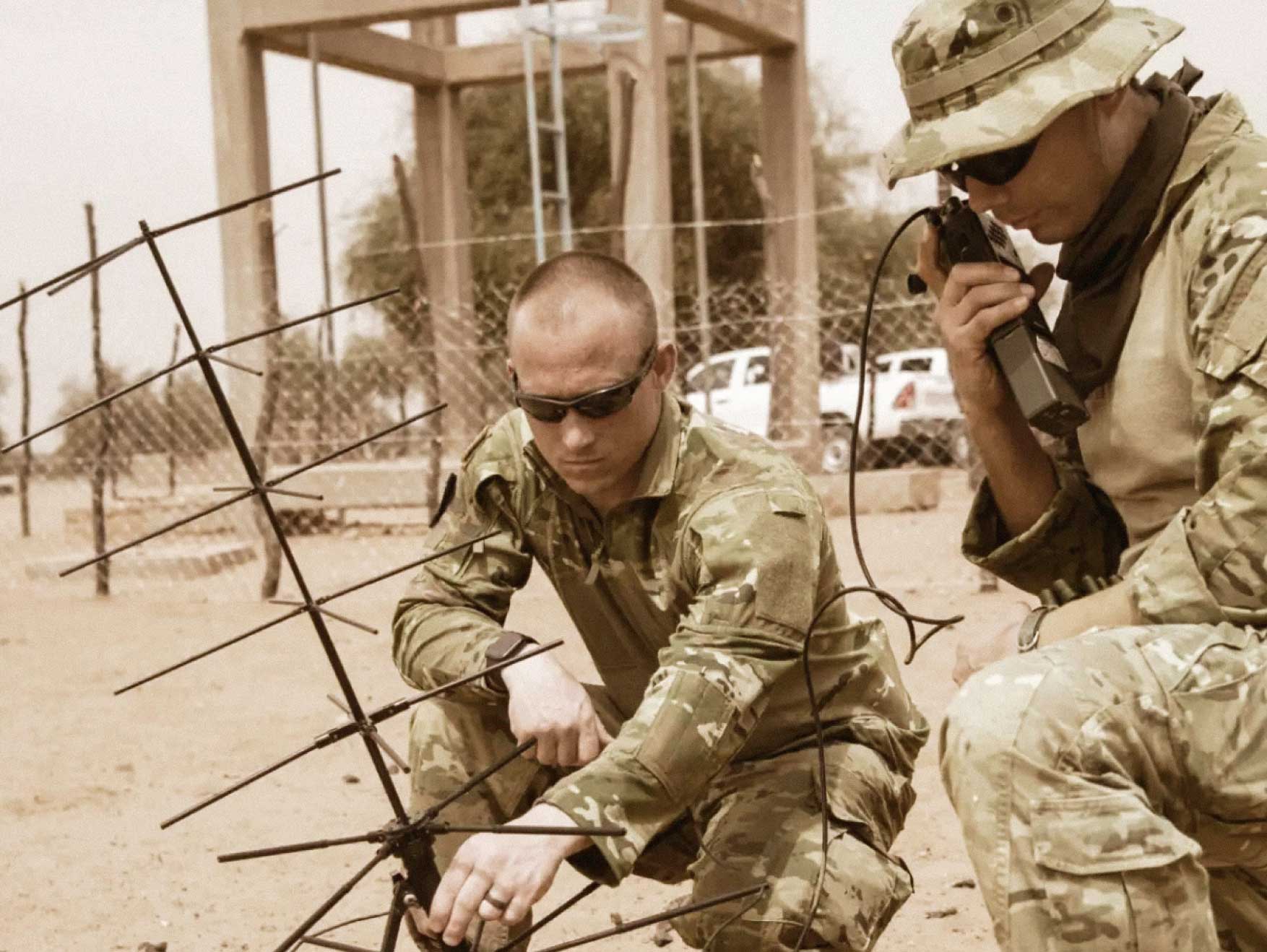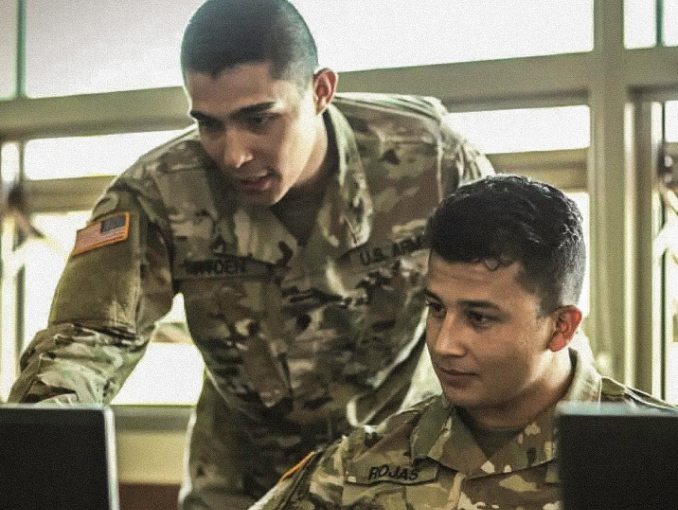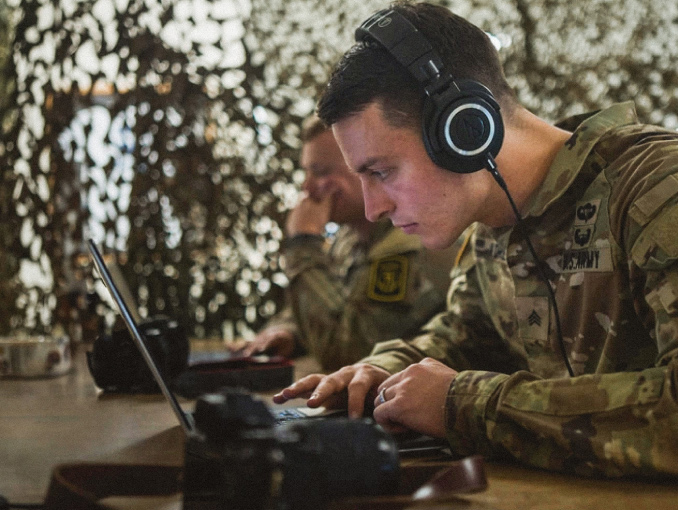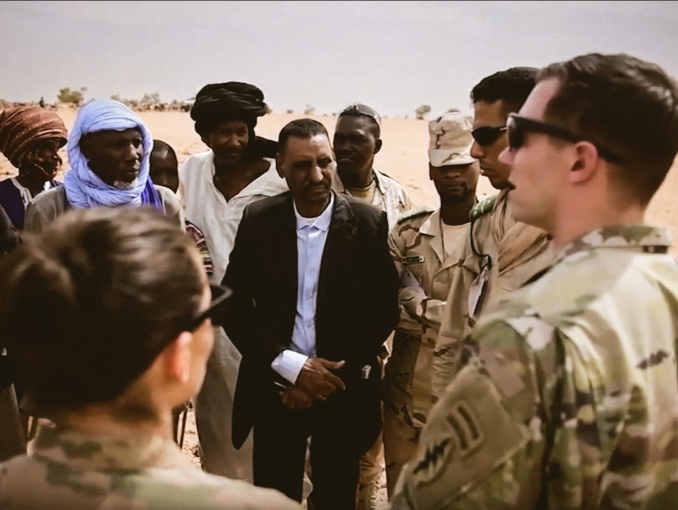PSYOP Assessment
You’ll be tested on your physical and psychological fitness to become a candidate for this elite force.
Psychological Operations (PSYOP) Soldiers use expert communication skills and unconventional tactics to support U.S. Army objectives.

Turn words
Turn words
into actions.
into actions.
PSYOP Soldiers support Army missions by using intelligence, interpersonal skills, cultural sensitivity, and foreign language proficiency to affect the actions and opinions of foreign individuals, groups, and governments.
PSYOP Soldiers work in small teams to execute missions around the world. They build relationships with leaders and civilians to gain trust and influence. They also use social media, digital marketing, and pamphlets to share information meant to help shift beliefs and behaviors in the U.S. Army’s interest.

Military Information Support Operations (MISO) missions involve sharing specific information to foreign audiences to influence the emotions, motives, reasoning, and behavior of governments and citizens. This can include cyber warfare and advanced communication techniques across all forms of media.

Military deception missions use psychological warfare to deliberately mislead enemy forces during a combat situation.

Interagency and government support missions shape and influence foreign decision-making and behaviors in support of United States’ objectives.

Civil Authorities Information Support (CAIS) missions aid civilian populations during disaster relief situations by sharing critical information to support the rescue effort.
Persuade.
Persuade.
Change.
Change.
Influence.
Influence.
Psychological warfare requires adaptability, resilience, and problem solving. To be selected as a PSYOP Soldier, you’ll first be trained and tested in order to prepare for the mental and physical toughness you’ll encounter in the field.
You’ll be tested on your physical and psychological fitness to become a candidate for this elite force.
During the PSYOP Operations Specialist Course you’ll learn the core skills of PSYOP Soldiers including basic speaking and listening proficiency in a foreign language, military intelligence, advanced interpersonal communication, adaptive leadership, cultural analysis, and advanced social media and marketing.
You’ll graduate the course as a PSYOP Specialist if you’re an enlisted Soldier, or as a PSYOP Officer.
You can join the Army as a PSYOP Soldier or transfer into the role if you’re a current Soldier. There are different requirements depending on the path you take.
New Soldiers
Current Soldiers
Be a U.S. citizen
Have a Defense Language Aptitude Battery (DLAB) score of 85 or above
Pass the Army Fitness Test (AFT) and clear the Army height and weight standards
Qualify for Airborne School
Be eligible for a secret security clearance
Find out more about becoming a Soldier and if a career in the Army is right for you.
Not finding what you need?
Chat with us any time.
Yes. In addition to Basic Combat Training, Soldiers must complete Advanced Individual Training and U.S. Army Airborne School.
If you are not ultimately selected to join, you will be assigned to a unit as a qualified specialist in the Military Occupational Specialty (MOS) you trained for while applying to PSYOP.
PSYOP Soldiers use effective technology to deliver critical messages during disaster or combat situations, including: The Fly Away Broadcast System, a vehicle-mounted or stationary system to broadcast radio messages or block enemy communications in the field; The Next Generation Loudspeaker System, a portable or vehicle-mounted loudspeaker to blast high quality recorded audio over large distances during disaster rescues; and video editing software, high tech cameras, and state of the art recording studios, to produce mission-critical messages.
Assigned languages include French, Indonesian-Bahasa, Spanish, Chinese-Mandarin, Korean, Persian-Farsi, Russian, Tagalog, Thai, and Arabic.
Yes, they receive special pay for learning a foreign language and graduating from Airborne School. Their total benefits package includes more than $50,000 to further their education, 30 days of vacation per year, complete medical and dental care, initial entry and reenlistment bonuses, and more.
Founded during World War I to devastate opposing troops’ morale, the PSYOP unit has played a critical role in World War II, the Vietnam War, and recent operations in Afghanistan and Iraq, where unconventional warfare provided by PSYOP has been crucial to national security.
You have no saved jobs.
Take a short quiz or explore more than 200 jobs that might interest you.
Army Career Match